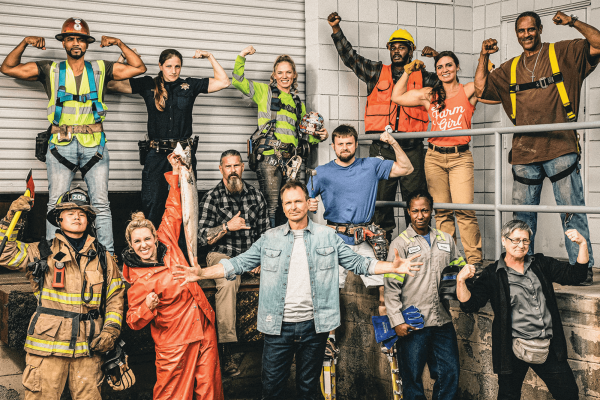IN MIDDLE SCHOOL I emailed CBS and asked them to make a teen version of their reality show Big Brother, in the hope that they would cast me and I could schmooze and deceive my peers to win the contest’s $500,000 prize. Schmooze and deceive weren’t my bright ideas: They formed a strategy I had seen succeed on previous seasons of Big Brother and Survivor, as clueless heroes were undone by ruthless, money-hungry, victorious villains. Even CBS’ clean-fun competition The Amazing Race had enabled contestants to backstab another team for $1 million.
So it’s unexpected that the network’s newer prime-time contest Tough as Nails plays to kinder rules—and that it has become part of my mostly drama-filled viewing habits. Twelve Americans with some of the most strenuous jobs that exist (welder, farmer, firefighter, ironworker, and more) vie in team and individual challenges to see who’s the hardest and smartest worker. As an artsy guy whose most physically demanding professional activity is typing, I would not have pictured myself in the Tough as Nails fan base. And yet, here I am.
Read the Full Article

